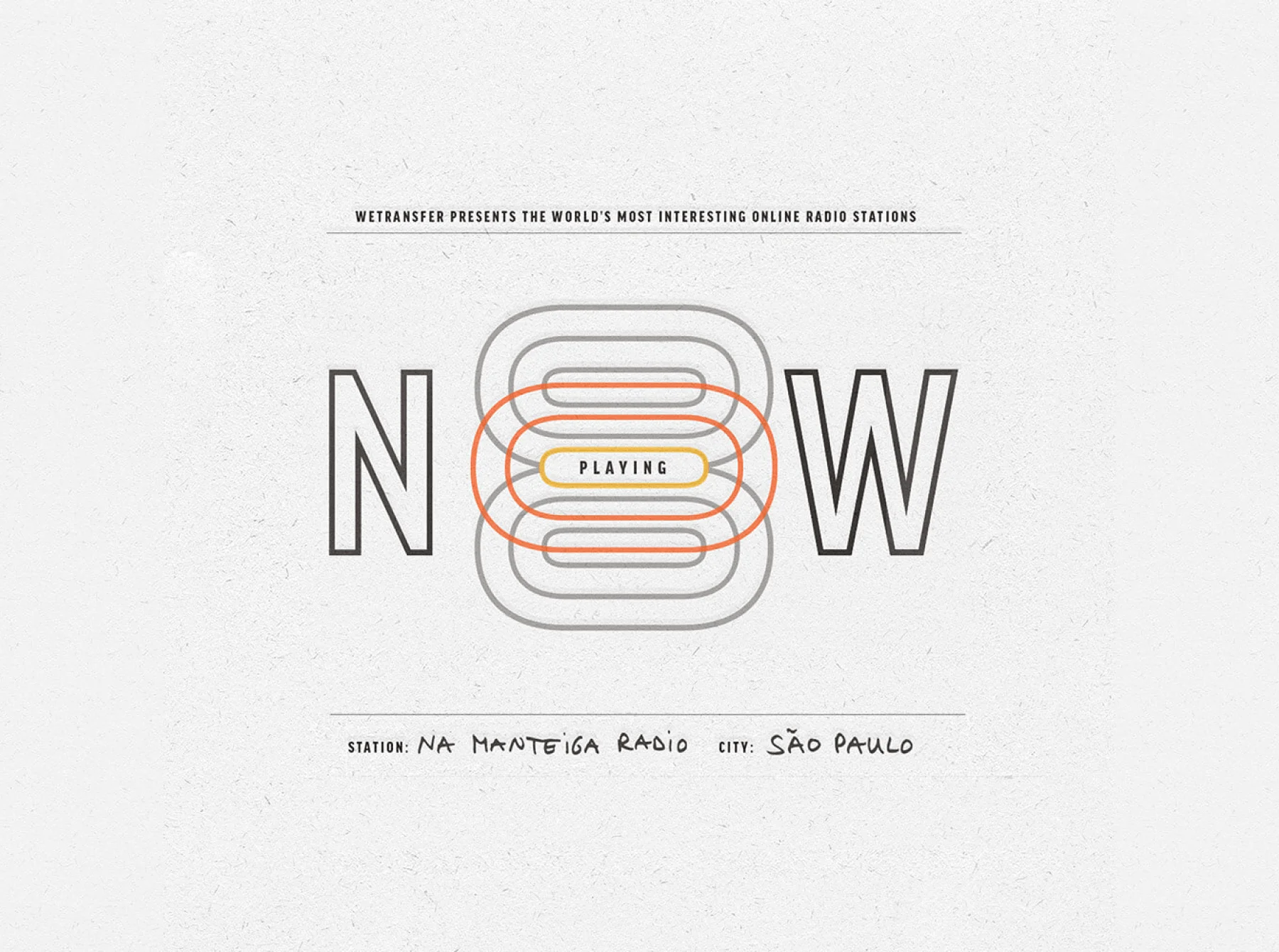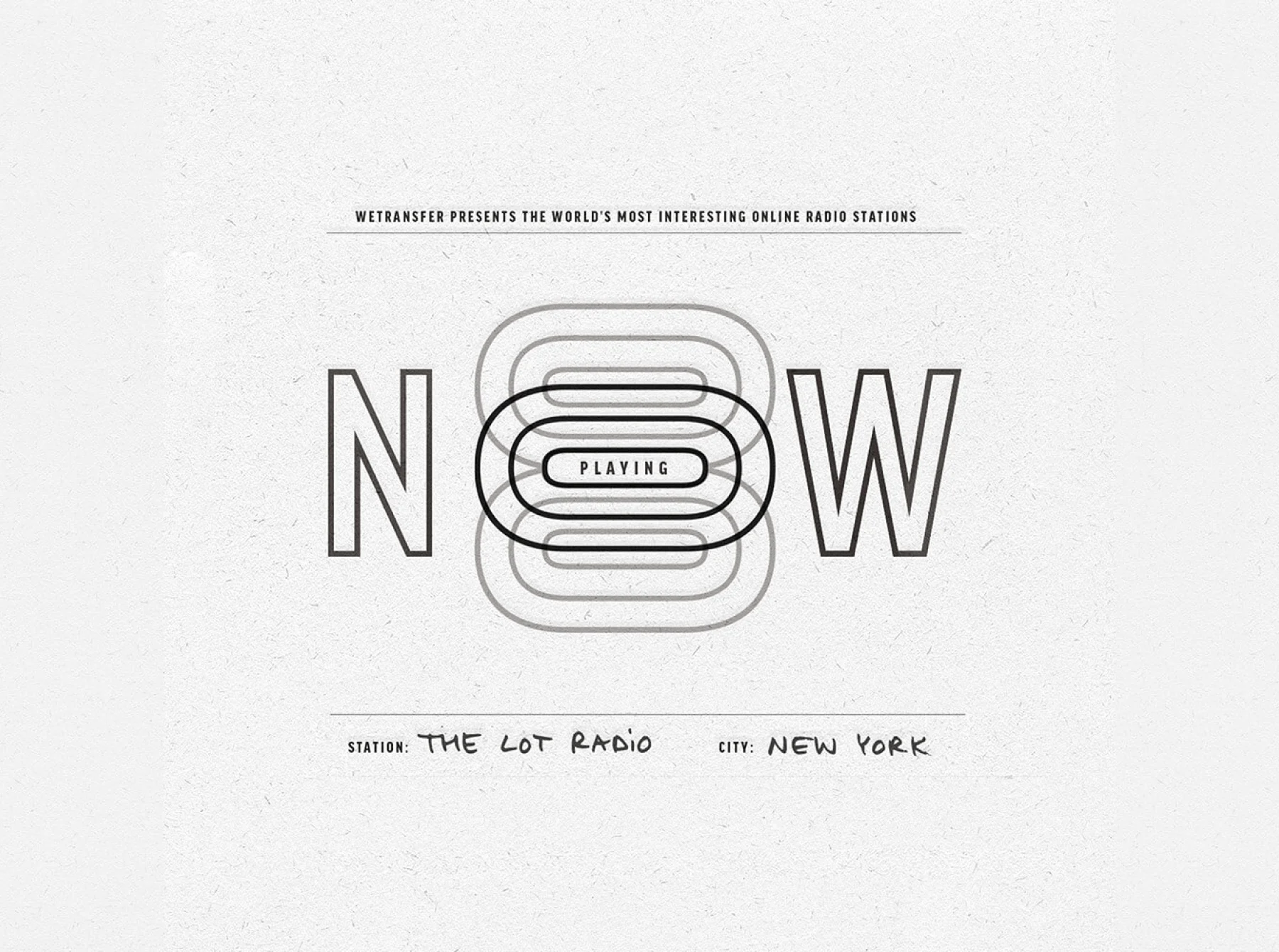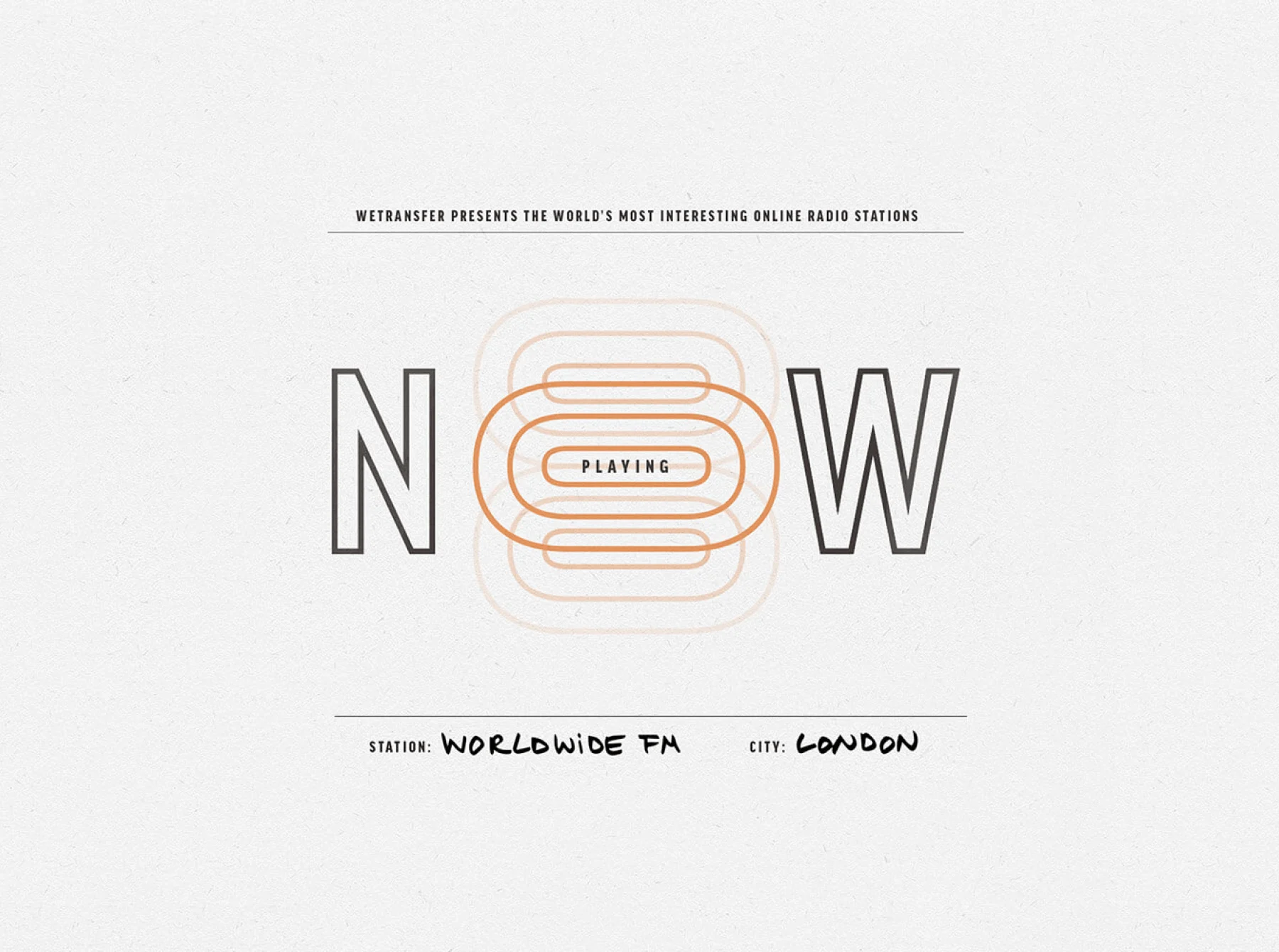
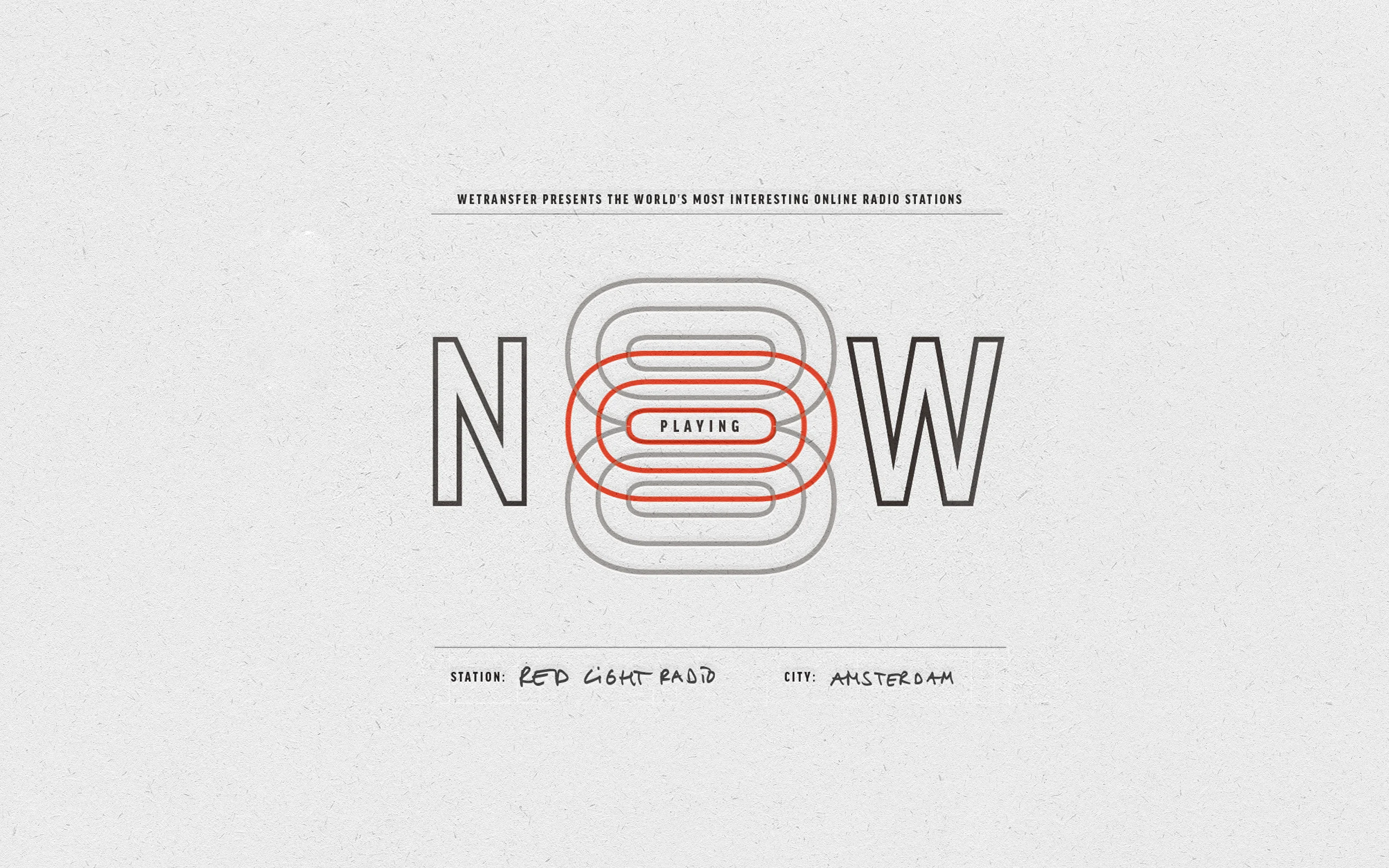
Our Now Playing series features some of the most interesting online radio stations in the world. We interviewed the founders of each, and asked them to select a handful of shows that really represent what they stand for. See the whole series here.

Amsterdam’s Red Light District is one of the city’s most famous attractions. But in the midst of it all, in the maelstrom of customers and maybe-customers and tourists and gawpers and passers-by, there is one window behind which something very different can be found.
Since 2010, Red Light Radio has been broadcasting, “the obscurest afro to the coldest wave, the blackest metal, the newest electronica and everything in between.” Beginning with the local Dutch music scene, founders Orpheu de Jong and Hugo van Heijningen have built something with huge international appeal.
Half of RLR’s listeners now come from outside the Netherlands; they attract followers in 150 countries. In 2015, Mixcloud named RLR the best Online Radio Station, but their offerings now also extend into parties, gigs and even their own festival, Strange Sounds From Beyond.
And from its base opposite the Oude Kerk, Red Light Radio has two on site (and much-respected) record stores, and a growing community of creatives.
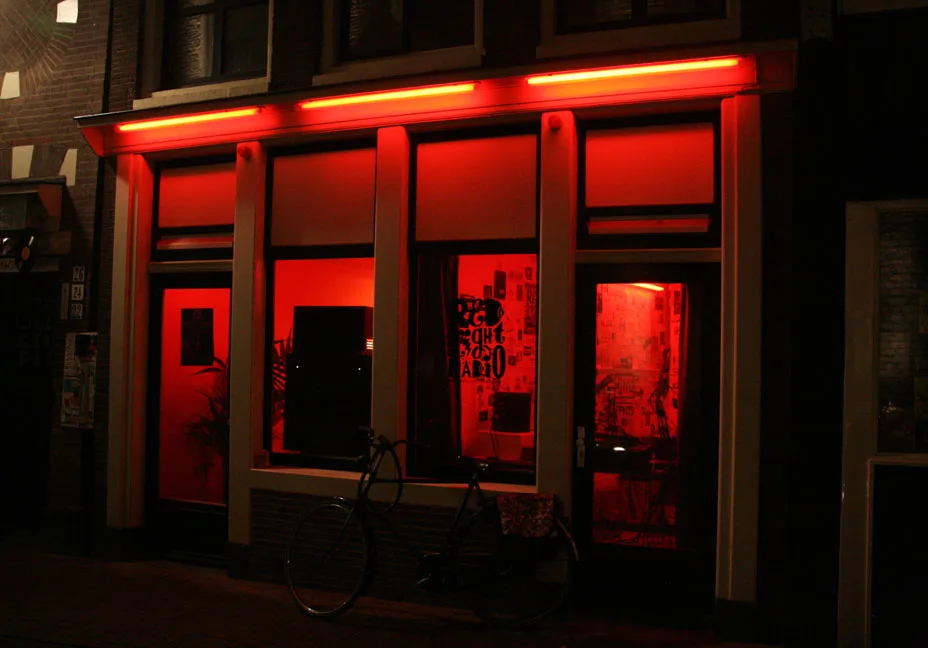
The origin of online radio in the Netherlands is pretty much CBS from The Hague. Now the city has the amazing Intergalactic FM. Lots of DJs and friends grew up with their mixes. It was a pleasure to have Gary as a guest at the Dekmantel Radio show and he killed it like only guys from The Hague can do. He’s just one of the best DJs around.
But back in the early days, when Hugo and Orpheo secured a three-month lease on the former brothel, and got a small grant to develop their nascent idea for an online radio station, they never imagined where they would be today.
“We never thought this would be a job like it is now,” Hugo says. “Now we make a plan for the year, kind of. But for years it was step by step. The mentality is still, what can we do and who can we work with? And that is a good thing because we are more aware of our identity – go with the flow and get involved with people we feel connected to, whether that’s a hip hop or a metal artist, a big museum or a small gallery.”
Orpheo agrees. “I am quite happy we didn’t start with some sort of masterplan. That would have been a bit boring. In the beginning it was make the station happen, then survive for a year, then stay in this building, and then make it a job.
“We made many, many, many mistakes,” he laughs. “Everything has been organic; choosing shows, choosing music, choosing who to work with and who not to work with.”

Amsterdam local hero Robert Bergman is a great DJ and does regular radio shows at Red Light. He’s also producing lots of heavy music; you should definitely check out his Soundcloud, with new tracks every week. Once he brought all his analogue gear to our studio to jam for an hour. Amazing show.
At the beginning the guys programmed shows and performances from their friends. It helped they came from different points of view – Hugo from the world of guitar-led bands and Orpheo more from electronica, and so from the start there was a wide range of music which found its way on air.
This has continued and grown, so that Red Light is renowned for its eclectic music program.
“We are always super open to stuff – that’s the only policy,” Orpheo explains. “It’s not about programming saying, ‘This is well-known’ or ‘This has an audience.’ Honest people with nice music – let’s go.”
“We learned to love different genres,” Hugo continues. “I have always been that rocker at house parties but I am really open-minded and the same goes for Orpheo.”
And, the pair point out, it’s still possible to know if something is good or not, even if it’s not the sort of music they would usually play at home.
“With reggae or something I can hear when it’s cheesy and it sucks or when it’s killer shit,” Orpheo says. “So we do program according to our own tastes, but it doesn’t have to be our music.”
That said, the odd mistake still happens. In fact the very morning we went to interview them, a show had gone out which made the pair wince.
“The first year that happened a few times a month, but now we are very professional in scanning the sets so it only happens once a year.,” Hugo says. “It’s funny that it happened this morning! We walked out; we went next door for a coffee. Every minute is too long when there is music on our station that we don’t love.”
But the flipside of that is the sheer joy that comes with the unexpected discovery. “Many times we get so excited by something new,” Hugo enthuses. “Especially if a young kid comes in with crazy records – that’s really the coolest thing about running a station.”
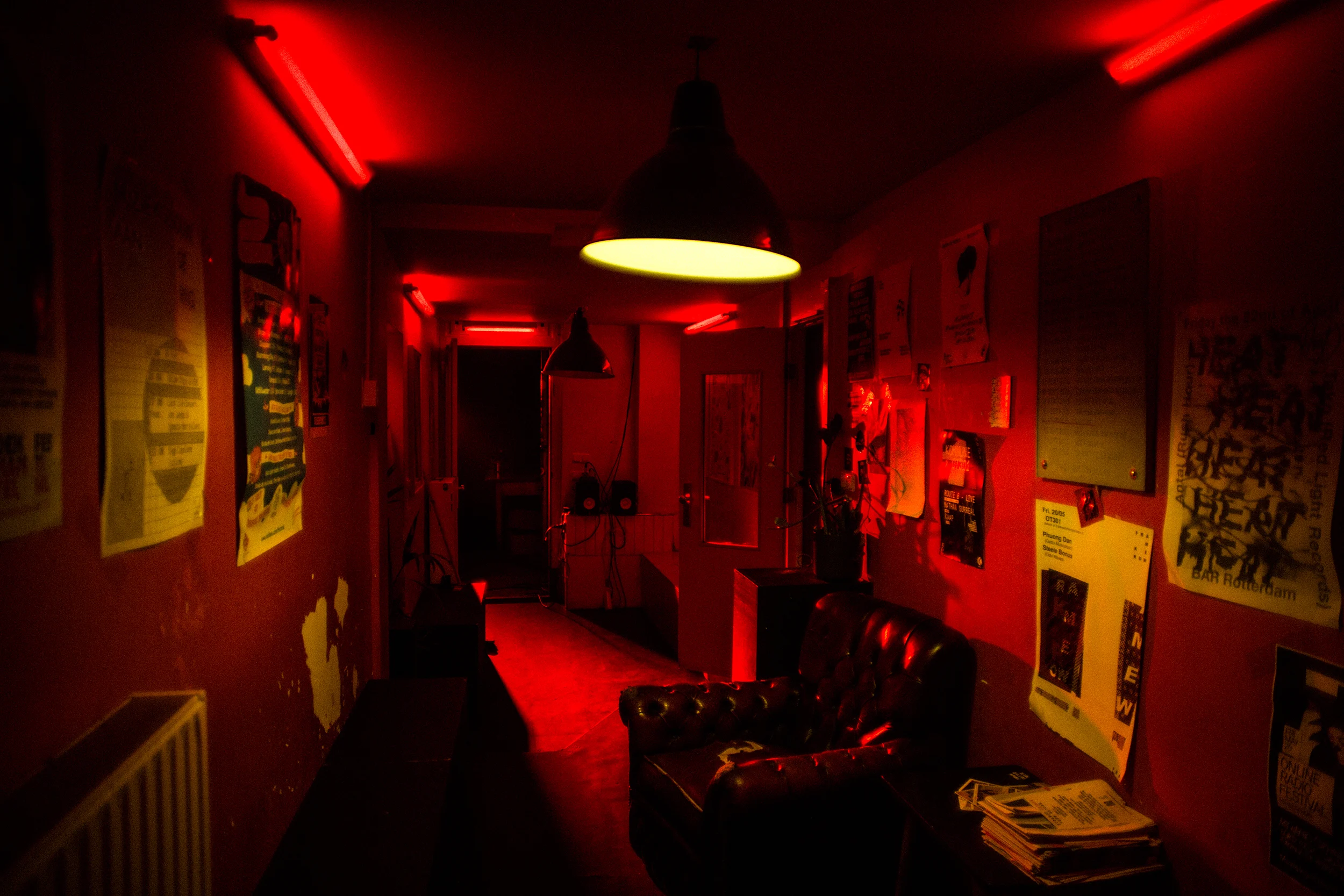
We make sure we have room for special occasions in our schedule. One of them is an extended radio show by Rush Hour’s Antal & Hunee. Every once in awhile they want to take our listeners on a journey in their Welcome To Our World show. This six-hour long mix is incredible from start to finish.
RLR has an interesting relationship with its surroundings. On the one hand, it’s very much of the Red Light District, of Amsterdam. But on the other it’s a global station with listeners all around the world.
The pair respect the neighborhood – they kept the red light and the velveteen curtain used by the building’s prior occupants, and they don’t – as some businesses do – look down on the nocturnal activities of their neighbours. The building has become a social hub, based on, “the interaction between the shop and the radio and the people working here. There are big names buying records and then new kids who come by and everyone mixes really well.”
And because Amsterdam is on the tour schedules of almost every band and musician you can think of, they are inundated with artists asking to stop by and play some tunes.
This strong sense of identity has served them well as they have expanded. They know what they stand for, and, maybe as importantly, they know what they don’t. The odd practical tweak was necessary – they had to insist all the DJs spoke English for example – but on the whole they have scaled up very naturally.
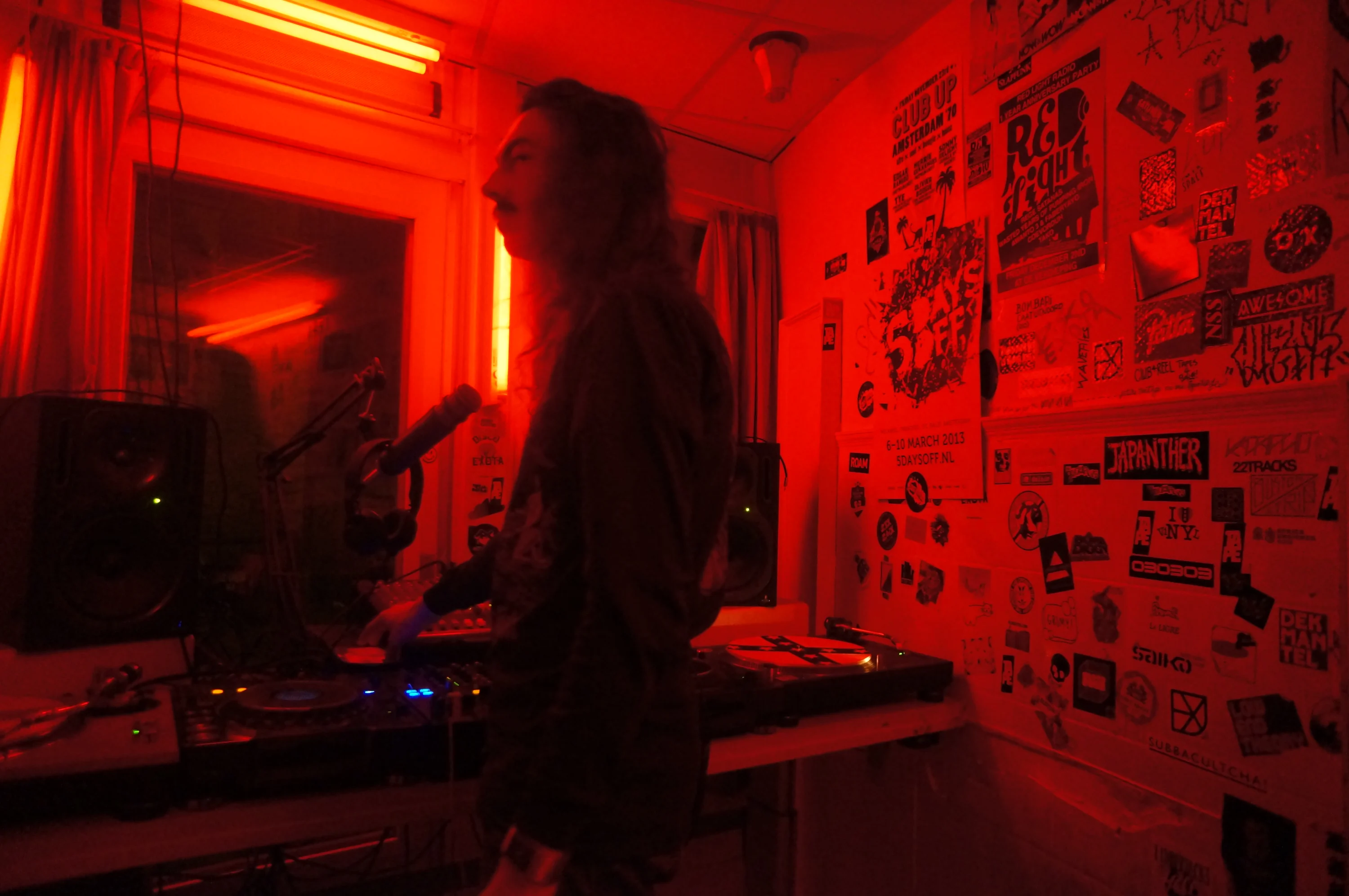
The Ghostly posse was in Amsterdam for a showcase and took over our studio for two hours. The whole show is great, but Shigeto’s part was next level with acapella trap vocals and other weird shit. He starts at 40 minutes – listen!
“It’s nice when you travel to Hawaii or Russia and it turns out there are people really into Red Light,” Orpheo says. “It’s super cool when you realise it’s a community.”
The move into live events has been seamless too. Again they have taken what makes Red Light successful and reproduced it at gigs and festivals from China to Berlin.
“Our parties are different because we really represent what is happening here at the station,” Hugo says. “At our last party we had techno and metal in one night; in the middle of the evening we had a punk band playing. That made it special and it’s what people come for – ok surprise me with some weird act.”
“And do it in a way that makes sense,” Orpheo adds. “That’s the challenge, that you can combine all of these things in one night and then afterwards people will say, ‘Whoa that really worked’!”
In the past five years, the number of online radio stations has mushroomed, but Hugo and Orpheo don’t seem too ruffled by the extra competition. They trust themselves, and each other, and they are confident without being complacent.
Orpheo says: “We will try new things but the base will always be the radio station and the base of a radio station will always be the music.”
